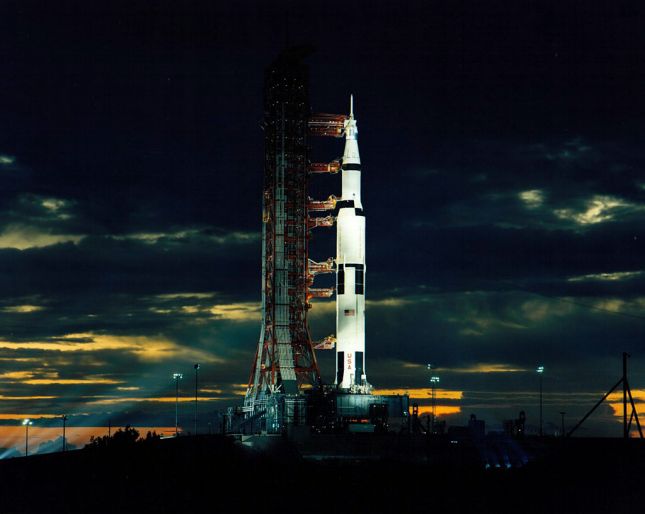
|
Explanation: In 1865 Jules Verne predicted the invention of a space capsule that could carry people. In his science fiction story "From the Earth to the Moon", he outlined his vision of a cannon in Florida so powerful that it could shoot a "Projectile-Vehicle" carrying three adventurers to the Moon. Over 100 years later, NASA, guided by Wernher Von Braun's vision, produced the Saturn V rocket. From a spaceport in Florida, this rocket turned Verne's fiction into fact, launching 9 Apollo Lunar missions and allowing 12 astronauts to walk on the Moon. Pictured is the last moon shot, Apollo 17, awaiting its December 1972 night launch. Spotlights play on the rocket and launch pad at dusk. Humans have not walked on on the lunar surface since.
|
January February March April May June July August September October November December |
| ||||||||||||||||||||||||||||||||||||||||||||||||
NASA Web Site Statements, Warnings, and Disclaimers
NASA Official: Jay Norris. Specific rights apply.
A service of: LHEA at NASA / GSFC
& Michigan Tech. U.
Based on Astronomy Picture
Of the Day
Publications with keywords: Moon - Apollo 17 - jules verne
Publications with words: Moon - Apollo 17 - jules verne
See also:
- APOD: 2025 August 23 Á Fishing for the Moon
- APOD: 2025 July 20 Á Lunar Nearside
- APOD: 2025 June 28 Á Lunar Farside
- APOD: 2025 June 20 Á Major Lunar Standstill 2024 2025
- APOD: 2025 June 18 Á Space Station Silhouette on the Moon
- APOD: 2025 April 22 Á Terminator Moon: A Moonscape of Shadows
- Moon Near the Edge
